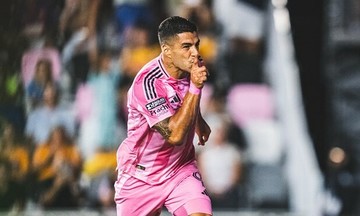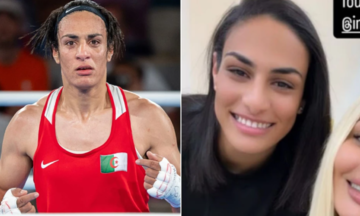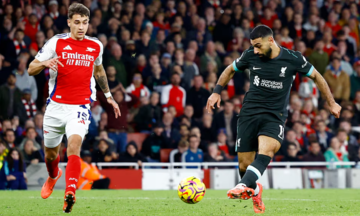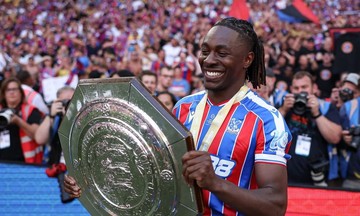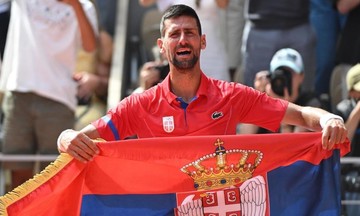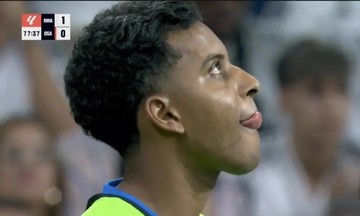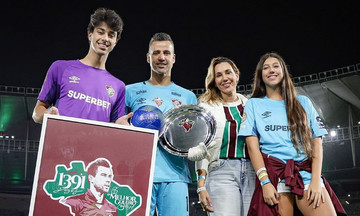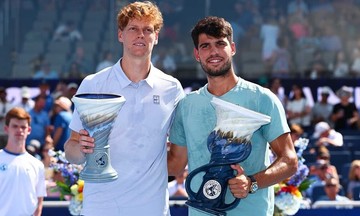Recent news surrounding Man Utd's finances has been predominantly bleak, from mass staff layoffs to the elimination of free employee lunches.
Over the past three financial years, Man Utd has accumulated losses exceeding £300 million (over $400 million), risking a breach of the Premier League's Profit and Sustainability Rules (PSR). PSR regulations permit a maximum loss of £105 million ($140 million) over three consecutive years unless corrective action is taken.
 |
Benjamin Sesko and his agent Elvis Basanovic on their way to Manchester for a medical examination on 7/8. Photo: Fabrizio Romano |
Benjamin Sesko and his agent Elvis Basanovic on their way to Manchester for a medical examination on 7/8. Photo: Fabrizio Romano
Given this context, the Old Trafford club's acquisition of Sesko from RB Leipzig surprised many. However, according to financial experts and sources within Man Utd, the deal is well within their financial control thanks to flexible payment arrangements and effective cost-cutting strategies.
Payments for two previous signings, Matheus Cunha (from Wolves) and Bryan Mbeumo (from Brentford)—totaling approximately $175 million—were structured to Man Utd's advantage. The payments are spread out annually over the players' contract durations. The Benjamin Sesko deal likely follows a similar structure, alleviating immediate financial pressure and ensuring PSR compliance.
Another key factor freeing up Man Utd's summer spending was loaning Marcus Rashford to Barca. The "Red Devils" received no transfer fee but Barca covered Rashford's entire $410,000 weekly wage.
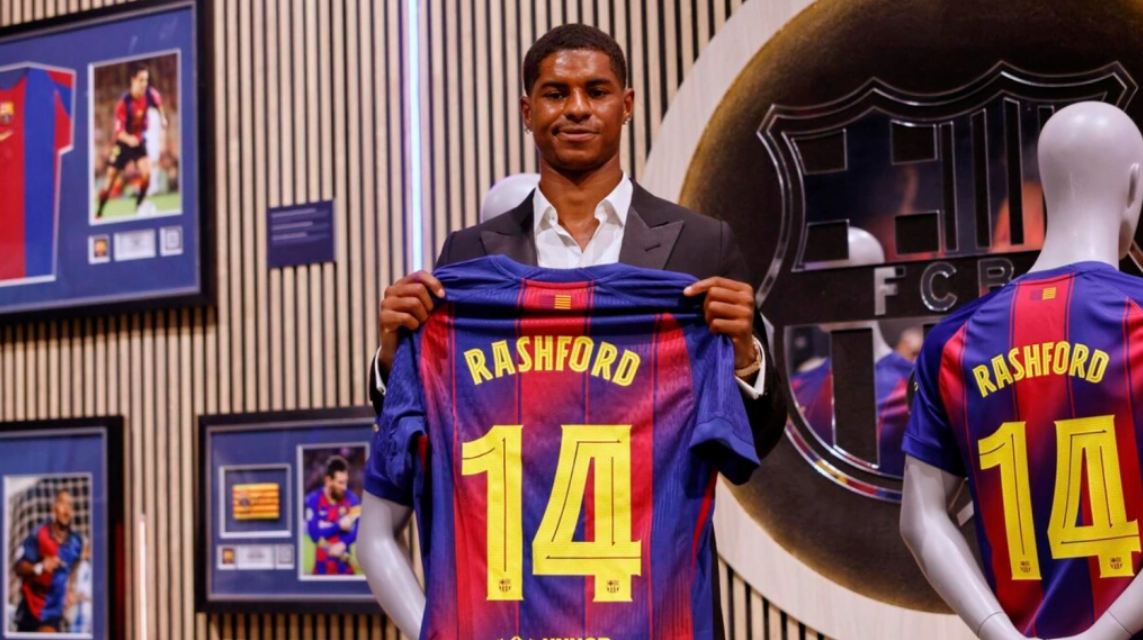 |
Marcus Rashford's Barca debut on 23/7. Photo: FC Barcelona |
Marcus Rashford's Barca debut on 23/7. Photo: FC Barcelona
Additionally, Man Utd received $7 million from Chelsea after the London club withdrew from permanently signing Jadon Sancho. Old Trafford also generated over $20 million from sell-on clauses related to academy graduates like Anthony Elanga, Alvaro Carreras, and Maxi Oyedele.
In the summer of 2024, Man Utd sold academy graduates Mason Greenwood and Scott McTominay. During the current transfer window, they also plan to part ways with several players no longer in their plans, including Alejandro Garnacho. Selling academy players can generate 100% profit under PSR rules.
Financial expert Kieran Maguire suggests that even with a total expenditure of $270 million, Man Utd's actual annual outlay is around $53 million—a figure potentially offset by selling players outside the team's plans.
Despite their lowest Premier League finish in the league's history and missing Champions League qualification, Man Utd remains a strong commercial entity. Reaching the Europa League final last season boosted revenue, and the club announced estimated core profits between $242 and $255 million—exceeding initial projections of $195 to $215 million.
According to Maguire, some previous reports regarding Man Utd's financial situation appear exaggerated. While growth hasn't met expectations, the "Red Devils" maintain a wage bill equal to half their revenue—a favorable ratio compared to other Premier League clubs.
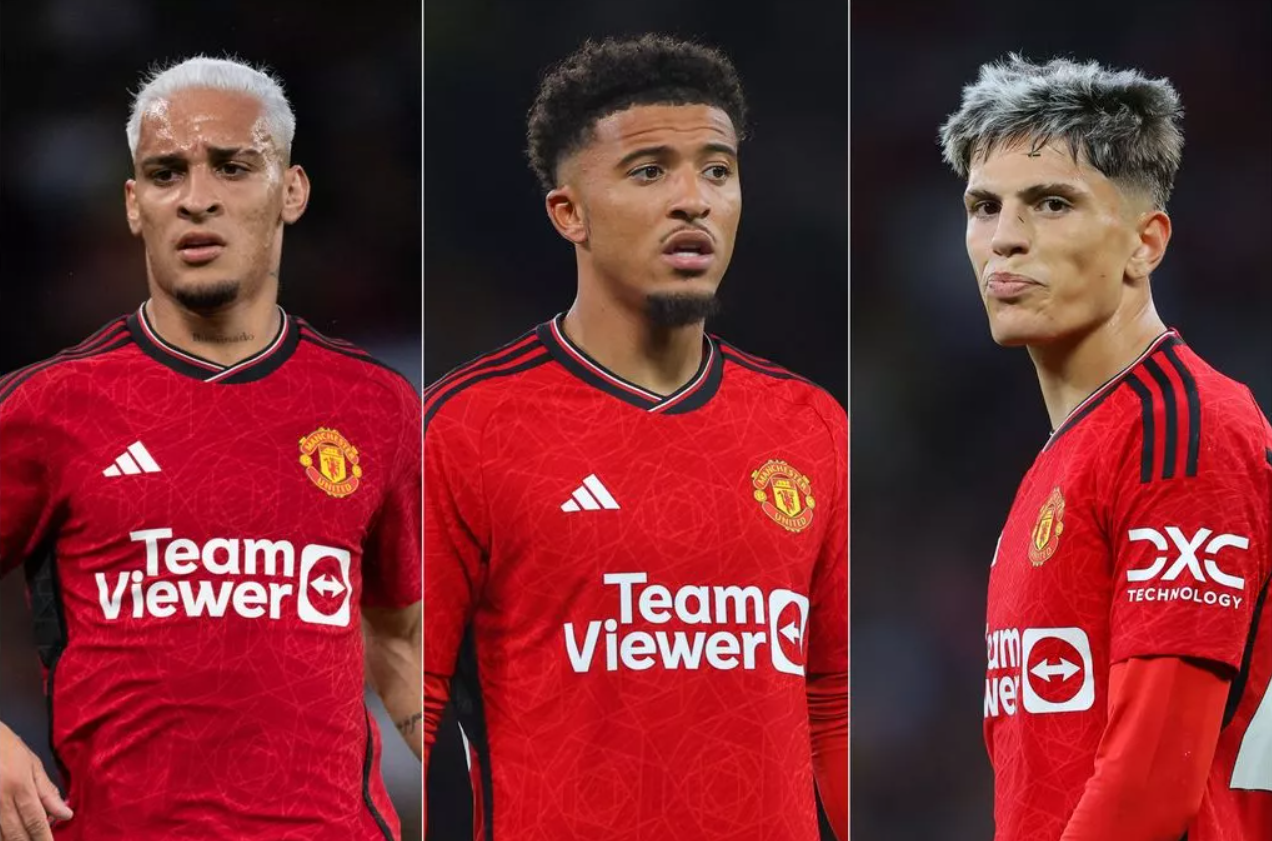 |
Man Utd is seeking buyers for Antony, Jadon Sancho, and Alejandro Garnacho (from left to right). |
Co-owner Jim Ratcliffe warned that Man Utd could "go bankrupt before Christmas" without drastic cost-cutting. The British billionaire emphasized his willingness to invest in players rather than unnecessary internal services. "Where do you want to spend the money? Running the machine or investing in the squad?" he asked. "We want to spend money on the best players in the world if we can, rather than on free lunches."
Despite signing Sesko, manager Ruben Amorim will need to sell players before further strengthening the squad, with Brighton midfielder Carlos Baleba as a target. Man Utd posted a $176 million loss in the 2023-2024 season, largely due to interest expenses and the Ineos takeover (not factored into PSR), but still a significant figure for a major club.
Maguire concluded: "Man Utd can't spend like Chelsea or Liverpool. Within the 'Big Six,' they're not in the best financial position. But they still have the biggest stadium, the highest matchday revenue, and a highly attractive brand."
Hong Duy (according to BBC)



